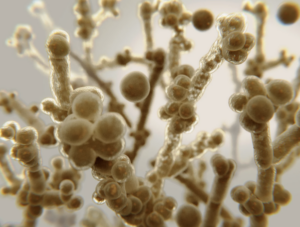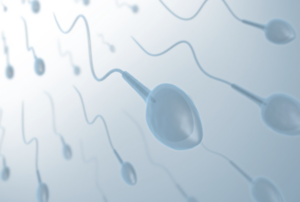The vaginal microbiome is increasingly being recognised as a critical influence on women’s health and wellness. In this article, ScreenMe discusses the emerging research linking the vaginal microbiome to cervical cancer. For more information on what the vaginal microbiome is, and what it means for your health — check out our ‘Vaginal & Sexual Health’ blogs.
How are they related?
Having an imbalanced vaginal microbiome leaves you more susceptible to infections, as your vaginal environment promotes the growth of ‘bad’ bacteria, rather than protective, ‘good’ bacteria.
This, good bacteria is called Lactobacillu, and plays a key role in maintaining the balance of your vaginal microbiome, as well as preventing the growth of any harmful bacteria or organisms.
In comparison, when Lactobacillus is depleted or not dominant, then this allows room for other bacteria and pathogens to grow, generating greater vaginal diversity. This means that you are more likely to develop vaginal infections, which includes the STD, HPV. HPV infection increases your risk of developing cervical cancer — for more information of this please see our dedicated blog post on this topic.
Further, the absence of Lactobacillus promotes inflammation in the vaginal environment. A 2022 study has linked this to an increase in the spread of malignant cells, as well as HPV oncogene expression.
**for more information on differences between vaginal microbiomes and what your community state-type means, read our blog on such here!
The research:
This field is quickly expanding, and so here are a few of the more recent studies that highlight the increasing consensus of a connection between vaginal health and cervical cancer.
A 2020 study found that Type 3 or Type 4 vaginal microbiomes (dominated by non-Lactobacilli species, or dominated by Lactobacillus iners) in comparison to Type 1 or Type 2 community state types (Lactobacillus dominance) had:
- 3 to 5 times higher likelihood of HPV presence
- 2 to 3 times higher risk of high-risk HPV and cervical cancer
A 2020 study found that:
- HPV infection generated vaginal microbiome imbalance
- increased vaginal diversity
- reduced presence of Lactobacillus
- Greater vaginal diversity was present in women with cervical cancer
How does ScreenMe help?
The first thing we would recommend is to test your vaginal microbiome. 84% of women with a vaginal imbalance do not experience any symptoms, so it is impossible to know exactly what is going on without a test.
ScreenMe offers a variety of different vaginal tests through our Vaginal & Sexual Health packages which come with the following:
- Screen 100% of the bacteria and yeast present in your vagina
- Entire vaginal ecosystem is screened
- Discover your vaginal community state type
- Comprehensive report of vaginal health from your ScreenMe PhD scientist
- Free consultation with our experts to discuss results
- Tailored plan of action created with your expert
- Use of gold standard testing:
- Cutting edge NGS (next-generation-sequencing) technology
- Entire DNA of microbiome is sequenced with 99% accuracy
- Partnered with NHS accredited laboratories
Testing will allow you to discover your level of risk, appropriate next steps, and give a comprehensive assessment of your current and future vaginal health. Of course, there are other, more short-term changes you can make to minimise your risk of cervical cancer such as:
- Practise safe sex
- Eat a balanced diet
- Eat vaginal microbiome friendly foods — see our dedicated blog post on such!
- Use vaginal friendly products — check out our Health Shop for expert recommended products that won’t disrupt your vaginal microbiome.
Your vaginal microbiome and health is not something that you should be scared of. For too long, women’s health has been a taboo topic, being hugely under-researched and under-represented. ScreenMe is here to put an end to that. It is time for women to take back control of their health!
Fariba Khonsari







